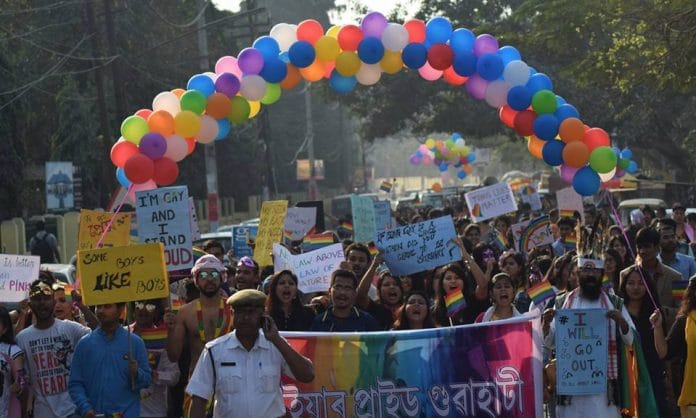The top court has concluded hearing petitions wanting consensual same-sex decriminalised. It will now proceed to give a verdict.
New Delhi: The Supreme Court Tuesday reserved its judgement on petitions seeking to decriminalise homosexuality.
A five-judge bench observed that the idea behind fundamental rights is to give courts the power to strike down laws that a majoritarian government, swung by votes, will not touch.
“The moment we are convinced there is a violation of fundamental rights, we will strike it down and not leave it to legislature,” Justice Rohinton Nariman, one of the five judges on the Constitution Bench said.
The bench, headed by Chief justice of India Dipak Misra, began hearing arguments challenging the validity of Section 377 of the Indian Penal Code last week.
The hearings came on a batch of pleas filed by celebrities and noted personalities including Bharatnatyam dancer Navtej Singh Johar, journalist Sunil Mehra, chefs Ritu Dalmia and Ayesha Kapur, and hoteliers Aman Nath and Keshav Suri.
During the past week, several crucial observations were made by the bench, giving an indication that it is veering towards the idea of reading down the offending section.
“A declaration (that) this relationship is constitutional will remove the ‘ancillary disqualification’ for people joining services, contesting elections. It will no longer be seen as moral turpitude.”
On day three, the court had observed that the stigma attached to the LGBTQ community would dissipate once the ‘criminal’ tag enabled by Section 377 was removed.
“Over the years, we have created an environment in the Indian society which has led to deep-rooted discrimination against people of same sex involved in a consensual relationship and this has impacted their mental health also,” the bench had observed.
“Section 377 IPC uses the phraseology ‘carnal intercourse against the order of nature’. The determination of order of nature is not a constant phenomenon. Social morality also changes from age to age. The law copes with life and accordingly change takes place,” it observed.
While the issue of larger rights for the LGBTQ community remains, the apex court has hinted that it is more inclined toward decriminalizing gay sex. The Centre has left the issue of decriminalizing gay sex on the limited issue of “consensual relationship” to the wisdom of the top court. However, it would need to file a detailed affidavit, if the argument moved on to granting rights to gay couples.






